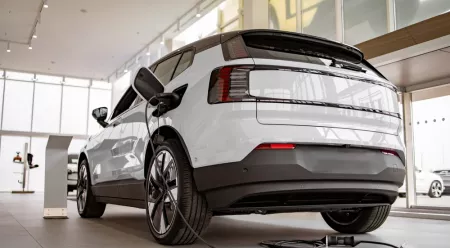If you run a business, whether big or small, and have cars or trucks involved in its operations, you need company car insurance. In 2019 alone, Canada produced 1.4 million commercial automobiles and nearly 23,300 heavy-duty trucks (Statista).
Standard car insurance policies cannot offer comprehensive coverage for so many commercial vehicles. That is why corporate auto insurance is used that’s tailored to the specific needs of businesses. If you want to learn more about it, feel free to have a peek at the rest of the guide below.
What is Company Car Insurance?
Also known as commercial car insurance, company car policy covers vehicles used for https://www.surex.com/blog/business-car-insurance. This includes the cars that your employees drive to perform company tasks like visiting work sites, moving goods, transporting passengers, and meeting clients/prospects.
However, keep in mind that if the employee uses their own car and that too for ‘personal commute’ only, then getting company car insurance is unnecessary; the user’s personal auto insurance should suffice.
Still, there can be instances when the employee’s personal car will be used for occasional work-related tasks like showing homes to clients as a realtor. So, in this case, your employees might need a company vehicle policy. Here are a few reasons to choose company car insurance:
-
A wide variety of vehicles can be covered, ranging from regular sedans to giant pickups and more.
-
You can get much higher liability limits
-
Many insurers don’t limit the number of cars that can be covered on the company car policy
-
Many insurers don’t limit the number of drivers covered on the policy
-
Many optional policies are available under company car insurance allowing you to expand the coverage
The best part of getting a company vehicle policy is that it can be tailored to fit the specific needs of a business through the availability of various endorsements. Check also this post about public car insurance.
START A QUOTE
When Do You Need Corporate Auto Insurance?
Simply put; if you operate a company and you and your employees use cars as a part of business operations, you need corporate auto insurance. Here are three key things to consider when deciding whether to purchase a company car policy or not:
-
Ownership of Cars: If the company owns any cars, then you need insurance for them. However, if the business uses automobiles owned by the employees – their personal vehicles – then things might be a little different. Depending on their cars' involvement in the business operations, company car insurance might be required in addition to personal auto insurance.
-
Car Usage: Stemming from the last point, if the company owns the cars, but their role is just for commuting of employees, then you don’t necessarily need company car insurance. However, if vehicles are used to transport people, equipment, or goods for business purposes, company auto insurance is required.
-
Vehicle Type: Some cars need to be covered regardless of their usage or who owns them. These include trucks weighing over 10,000 pounds or having load capacities of 2,000+ pounds. Similarly, automobiles with commercial modifications such as having a rack or ladder also need a company car insurance policy.
How Does Company Vehicle Policy Work – Business Vehicle Insurance Coverage Types:
Corporate auto insurance works similar to standard car insurance. It offers a range of coverage types under the umbrella of one policy and reimburses you when you claim for accident, theft, vandalism, or other issues covered by it. Some common business vehicle insurance coverage types include:
-
Collision Coverage: No matter who’s at fault in an accident, this coverage pays for your car’s damage.
-
Liability Coverage: Covers both bodily injury and property damage liabilities under a single limit.
-
Injury Coverage: This one covers the medical expenses for the driver and the passengers inside your car during an accident.
-
Uninsured Motorist Coverage: If your car gets into an accident and the other party is uninsured/underinsured, then this coverage pays for your car’s damages.
-
Comprehensive Coverage: Your car will be covered if damages are caused by non-accident incidents like theft, vandalism, flood, etc.
Some Optional Coverage Types:
-
Rental Payment: If your company’s insured car requires repairs, this policy pays for a temporary substitute.
-
Trailer Interchange: If your company cars use third party trailers, they will be covered under this policy.
-
Hired Cars: Offers coverage for rental vans or vehicles for transporting clients or employees.
-
Non-Owned Coverage: This one covers vehicles that your employees own but use for your business operations.
Company Car Policy Cost – How is it Calculated?
Company car insurance essentially depends on the nature of work and vehicle type. If you are only using the car(s) for commuting, the premiums might set you back a few hundred dollars only.
However, if the work nature is riskier, like transporting goods, and the vehicle is also bigger like a 10,000lbs truck, you may need to shell out thousands in premiums. Here are the typical factors that insurers use to crunch the numbers:
-
Size and dimensions of the vehicle
-
Value of the car
-
Number of cars and drivers
-
Cargo type; dangerous goods can increase the cost
-
Your coverage type
-
History of claims
-
Distance of typical commute
-
Your credit score
Check also this article to learn if you can use car insurance for your company as a tax expense.
Can You Use Company Cars for Personal Chores?
Yes, in most cases, you will be able to use company cars for your personal chores and will still be covered by the business vehicle insurance.
However, if the company vehicle is larger than a regular-sized pick-up truck, it’ll make more sense to use your own car for errands. This is because your standard auto insurance policy will likely be cheaper.
Check also this article about credit card rental car insurance.
Word of Advice: Don’t Get What You Don’t Need!
When you reach out to corporate car insurance brokers or companies, some will try to sell you the coverage types that you might not even need. Because of the various types of policies under the umbrella of commercial car insurance, a smooth-talking agent might try to oversell you.
So, look at the vehicle types that need insurance and their business usage, and then figure out the coverage type you need to avoid getting unnecessary policies. You can always talk to an insurance advisor to help you figure things out.



